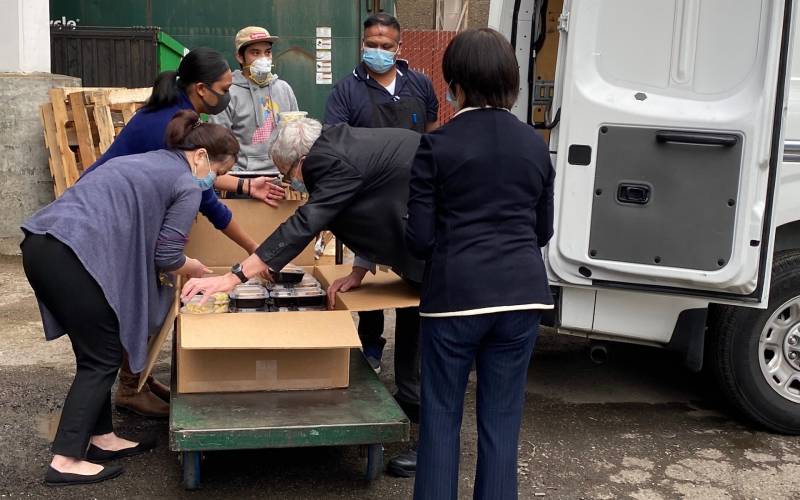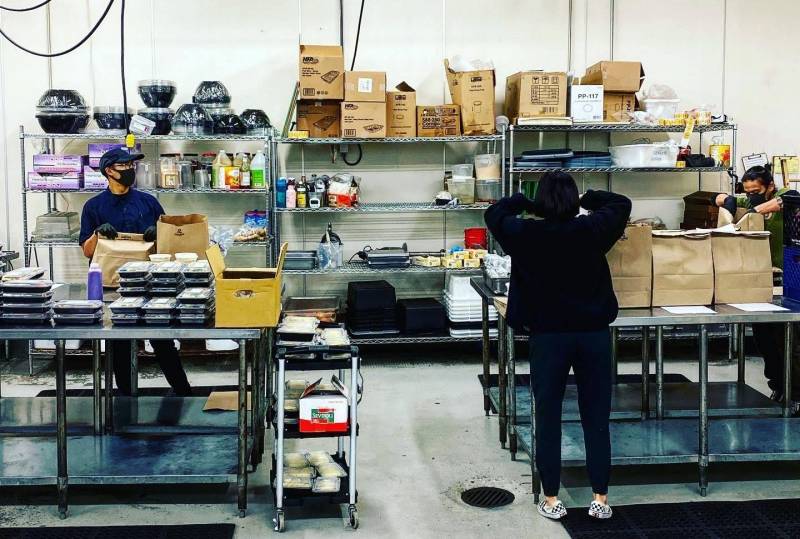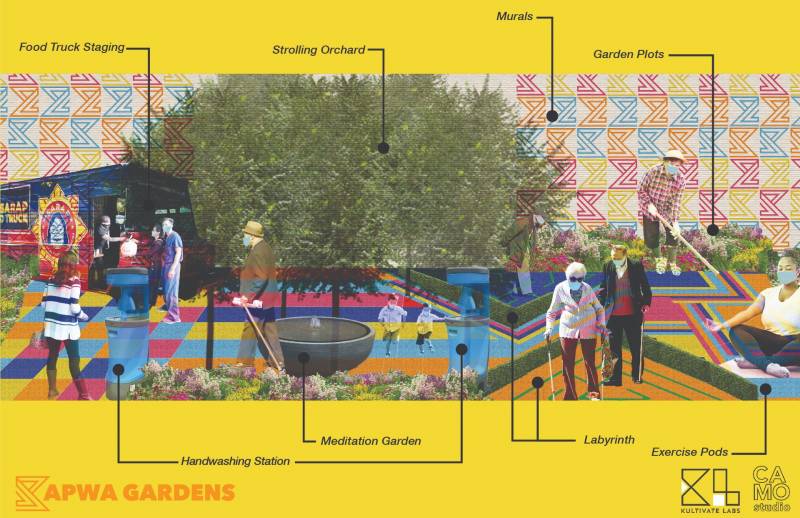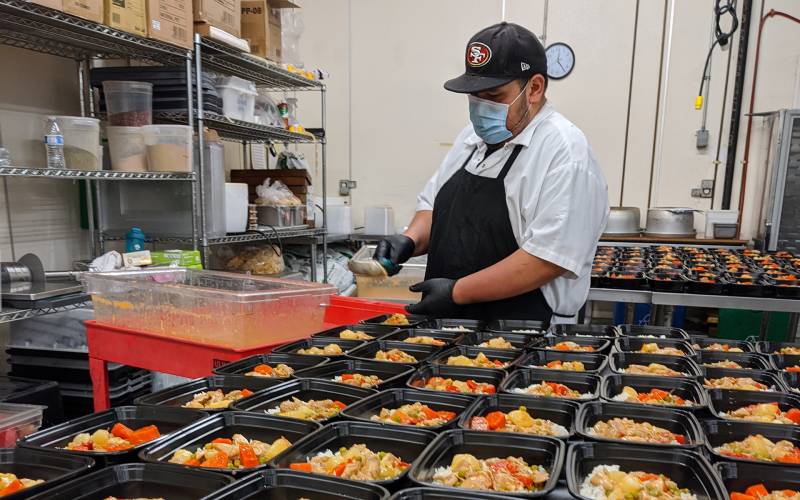About 20% of registered nurses in California are Filipino, and the COVID-19 crisis is having a disproportionate impact on them. At the same time, Filipino restaurants and food trucks are struggling to survive while sheltering in place. A new campaign called Filipinos Feed the Frontlines aims to connect those dots, giving a boost to Bay Area Filipino restaurants by paying them to make meals for health care workers and communities in need.
Desi Danganan helped launch the effort as the executive director of Kultivate Labs, a nonprofit based in SOMA Pilipinas, San Francisco’s newly designated Filipino cultural district. California Report host Sasha Khokha talked with Danganan about the meal effort. Here are some interview highlights. These excerpts have been for edited for brevity and clarity.
On how the project got started:
We sent out a survey to our network of entrepreneurs. The data we got was really startling: A lot of the Bay Area Filipino restaurants were seeing 90% drops in revenue. Some were reporting that they only had two months’ worth of cash to stay alive. It was really a big Hail Mary to see what we could do quickly to try to save these restaurants. The other part of the equation was addressing the needs of front-line health care workers, and the community in the Filipino cultural district we got designated four years ago. A lot of the Filipinos here happen to be seniors. A lot of them also happen to be undocumented or lower income. And these are the populations that are most impacted by the economic devastation of COVID-19.

On the fundraising model and the Filipino tradition of kapwa:
This project is crowdsourced. Donations are coming from around the nation. It's not just the Bay Area. We have a large cluster of donors from Los Angeles. We also have people as far away as Florida, Oklahoma and New York who have been donating to our campaign. Kapwa is basically a very deep and interconnected sense of empathy of "if something happens to you, I can feel that." We are a very interconnected community.
The Philippine archipelago of islands is in an area that is always hit by typhoons and hurricanes. Natural disasters and calamities are kind of a part of life. In the Philippines, you can't really depend on the dysfunctional government to help you. So, you have to turn to your fellow kababayan, your fellow countrymen, to find help. We always band together when times of crisis occur.

On whether the campaign is enough to save local restaurants:
Some restaurants have already realized they’ll have to close, like Mestiza Taqueria, a San Francisco Mexican and Filipino fusion restaurant. Others are still struggling. This crisis is not going to end in three weeks or in two months. But you know, what we're doing is helping. Sales right now are so precarious that what we're giving our alliance of food businesses is actually a lifeline. Our first week, we were able to distribute 600 meals. In our third week, that jumped up to a little over 2,000 meals.
On looking ahead to when the shelter-in-place order ends:
We're actually building a new public space in San Francisco’s South of Market called Kapwa Gardens that is designed to address some of the issues that are emerging from COVID-19. Many of the residents live in cramped conditions, SROs and one-bedroom apartments where multiple families live. Those cramped quarters present challenges for mental health during the shelter in place when there isn’t much green space around.

The city of San Francisco has given us an 8,000-square-feet parking lot that we're designing with a really cool, culturally relevant mural on the floor. It's actually a grid line that emphasizes social distancing. And as you go through this grid, it turns into a labyrinth of fruit trees where the community can pick fruit. Towards the end of it will be an exercise pod that'll be gridded out in a way so that people could still exercise, but maintain the proper social distancing to keep safe.

